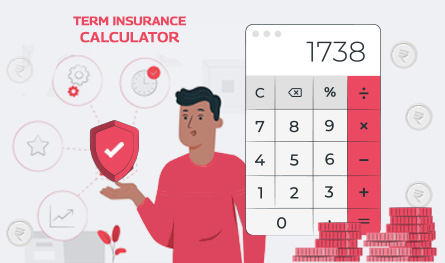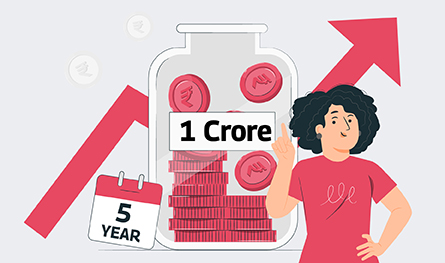Section 80DDB – Check Tax Exemption & Deduction Under Section 80DDB of the Income Tax Act
.png)
Taxpayers can claim tax deductions under section 80DDB of the Income Tax Act, 1961, on the treatment expenses of certain specified diseases. This deduction can be claimed on the yearly income of the claimant to lower their tax liabilities.
.png)
- What Do You Understand by Deduction Under Section 80DDB?
- Who Are Eligible to Claim Deductions u/s 80DDB?
- What is the Amount that Can be Claimed u/s 80DDB?
- Whose Medical Expenses Can be Claimed Under 80DDB?
- Treatment for Illnesses/Conditions Allowed Under Section 80DDB
- Documents Required to Make Claims Under 80DDB
- What Details are Required in the Prescription?
- How to Fill Section 80DDB Form?
- Things to Remember About 80DDB Deductions
What Do You Understand by Deduction Under Section 80DDB?
Section 80DDB is a section under the Income Tax Act of India, 1961, that comprises tax exemptions on medical expenses incurred by a taxpayer for undergoing treatment of some specific diseases.
As per this section, taxpayers can claim deductions for expenses of some specific diseases. Such tax exemptions under section 80DDB are available for individual taxpayers as well as HUFs or Hindu Undivided Families.
You may note that the 80DDB deductions can be claimed only by Indian residents, and Non-Resident Indians (NRIs) are not allowed to avail of such deductions.
Who Are Eligible to Claim Deductions u/s 80DDB?
The eligible candidates to claim tax deduction under the 80DDB Section are:
- Individuals
- HUFs
- Resident Indians
- Taxpayers who incurred expenses on a dependent’s treatment (dependent include parents, siblings, children, spouse)
What is the Amount that Can be Claimed u/s 80DDB?
The maximum deduction that can be availed of under 80DDB is INR 1 lakh for senior citizens and INR 40,000 for others.
As per section 80DDB of the IT Act, deduction towards payments made for medical treatment of self or dependants for specified diseases is:
- INR 40,000 or actual expense (People below 60 years)
- INR 1,00,000 or the actual expense (Senior Citizens)
Whose Medical Expenses Can be Claimed Under 80DDB?
80DDB deduction can be claimed by taxpayers who incur medical expenses of the people mentioned below:
1. Individuals:
If the expenses are incurred for the treatment of the assessee or any of their dependents, the claim under this category can be availed of. A dependent (or financially dependent) individual can be the assessee’s spouse, children, parents, or siblings.
2. Hindu Undivided Family (HUF):
Deduction for expenses on treatments can also be claimed if it is incurred for any HUF member.
Treatment for Illnesses/Conditions Allowed Under Section 80DDB
Treatments of various medical ailments and diseases are allowed u/s 80DDB as mentioned below:
- Neurological Diseases like:
- Ataxia
- Dementia
- Aphasia
- Dystonia Musculo rum Deformans
- Hemiballismus
- Parkinson’s Disease
- Chorea
- Motor Neuron Disease
- Chronic Renal Failure
- Malignant Cancers
- Hematological Disorders like Thalassemia, Hemophilia, etc.
- Acquired Immuno-Deficiency Syndrome (AIDS)
Documents Required to Make Claims Under 80DDB
Some mandatory documents are required to be filled to claim deduction u/s 80DDB. The first important thing for the applicant is to show proof that the treatment is required and that the treatment has been undertaken. Hence, obtaining a prescription from a specialist doctor is important and mandatory as well.
Below are the documents required to claim a deduction u/s 80DDB of the IT Act:
- As stated above, a prescription from a specialist doctor for the treatment of specified diseases under section 80DDB
- Payment proofs in the form of bills and receipts for the incurred medical expenses
- ID proof of the patient, including PAN, Aadhaar card, etc.
- Form 10-I that serves as a claim for deduction. Form 10-I is a statement made by the assessee in a specific format
Further, below are some disease-specific documents required under section 80DDB:
1. Neurological Diseases:
Requires a prescription from a specialist with a Doctorate of Medicine degree in Neurology. Alternatively, you can obtain a prescription from a specialist with an equivalent degree.
2. AIDS:
It requires a prescription from a specialist who holds a postgraduate degree in general medicine or internal medicine or an equivalent degree
3. Malignant Cancer:
Prescription should be sought from an oncologist with a specialist degree in the same field or an equivalent degree.
4. Chronic Renal Failure:
Here, you need a prescription from a Nephrologist with a D.M. degree in the field. Alternatively, you may seek a prescription from a Urologist with an M.Ch. degree in Urology or an equivalent degree
5. Hematological Disorder:
Under this condition, you must obtain a prescription from a degree holder in the same field or an equivalent field
It is important to note that the degree of the specialist doctor must be approved by the Medical Council of India.
What Details are Required in the Prescription?
The Income Tax Department requires the taxpayer to fill in the below details in the prescription. You should receive the prescription from qualified doctors with relevant specializations.
Here are the details required:
- Name and age of the patient
- Mention the ailment/disease
- Details of the doctor (specialist) issuing the prescription, such as;
-
- Name of the specialist
- Address of the specialist
- Registration number
- Qualification
- Name and address of the hospital (If the treatment is going on in a government hospital)
- Sign of the doctor/head of the hospital (in case of a government hospital)
After filling in the details, the assessee is required to submit the prescription to the income tax department along with the ITR.
How to Fill Section 80DDB Form?
The 80DDB section allows taxpayers to claim deductions for any expenses incurred toward the treatment of some specific diseases. The claim can be made for the treatment of the taxpayer or any other family member who is a dependent of the taxpayer.
Form 80DDB requires several details to be filled in. Below are the fields that are required to be filled in the 80DDB form:
- Fill out the name of the applicant
- Fill out the address of the applicant and their father’s name
- Fill out the person’s name and address that the applicant is dependent on, as well as the relationship they share
- Now, see Rule 11DD before filling in the column about the disease
- Also, mention the percentage of disability. If it is 40% or above for the particular disease
- Next, enter the details of the specialist issuing the certificate, such as name, qualification, registration number, etc., along with the details of the government hospital
- Next, duly sign and fill in the details in the verification section
Things to Remember About 80DDB Deductions
- It is important to remember that deductions under 80DDB can be claimed on the actual expense incurred in a particular FY
- Deductions to be claimed depend on the age of the patient undergoing the medical treatment and not on the age of the claimant
- The deductions claimed under 80DDB cannot be claimed under other sections mentioned in Chapter VI-A of the Income Tax Act
FAQs: Check Tax Exemption & Deduction Under Section 80DDB of the Income Tax Act
The maximum section 80DDB limit is INR 1 lakh. However, this deduction amount can be availed for the treatment of a senior citizen of 60 years and above or of a super senior citizen of 80 years and above.
It is a section under the Income Tax Act of India, 1961, that talks about tax exemptions on medical expenses incurred by a taxpayer for undergoing treatment of some specific diseases.
Under certain conditions, this deduction under both sections may be claimed together.
The list of ailments that come under section 80DDB deductions is mentioned in the post above for you to refer to.
You may claim tax deductions for your mother- or father-in-law under Section 80DDB in case they are the dependents of your spouse.
You can claim a maximum deduction under 80DDB for the expenses that you incur or the maximum limit offered, whichever is lesser.
Yes, if it is included under the list of specified diseases under Section 80DDB, it can be claimed.

Author Bio
Paybima Team
Paybima is an Indian insurance aggregator on a mission to make insurance simple for people. Paybima is the Digital arm of the already established and trusted Mahindra Insurance Brokers Ltd., a reputed name in the insurance broking industry with 17 years of experience. Paybima promises you the easy-to-access online platform to buy insurance policies, and also extend their unrelented assistance with all your policy related queries and services.
Other Life Insurance Products
Latest Post

Let’s be honest – life insurance planning isn’t exactly someone’s weekend hobby. It is the financial equivalent of flossing: we understand its importance, but we tend to put it off. But somewhere between balancing work and life, you might realise you need to have a solid plan in place – just in case.


If you think of life insurance, chances are you are picturing something people buy in their 30s or 40s. But what if you are 65 or older and just getting started? The good news is that you are never too late. Whether you are thinking of easing the financial burden on your family, covering final expenses, or simply leaving behind a legacy, there are life insurance options tailored just for you.
This article will be a guide to life insurance for senior citizens above 65 years, explaining why it is important, the type of insurance options, and how to get the right policy for you.


Health insurance plans are purchased with the hope of medical protection in times of need. However, sometimes it ends up being a source of surprise and disappointment. This mostly happens when people rush to buy health insurance plans, often overlooking essential aspects. Ignoring waiting period clauses, misunderstanding exclusions, and being unaware of sub-limits can lead to unwanted problems in the future.


If you are looking at investment policies offering INR 1 Crore in 5 years, we talk about some excellent plans in this post to help you choose the best one and reach your goal. However, it is important not to get swayed. Doing proper research and taking advice from financial or insurance advisors is important. Learn about such investment plan in this post.

The last few years have made it very clear that having health insurance is essential for everyone. Whether you are a young professional or a senior citizen, are single or have a family to support, health insurance cannot be ignored. Keeping this in mind, health insurance companies offer comprehensive plans that suit people with varied insurance needs.




